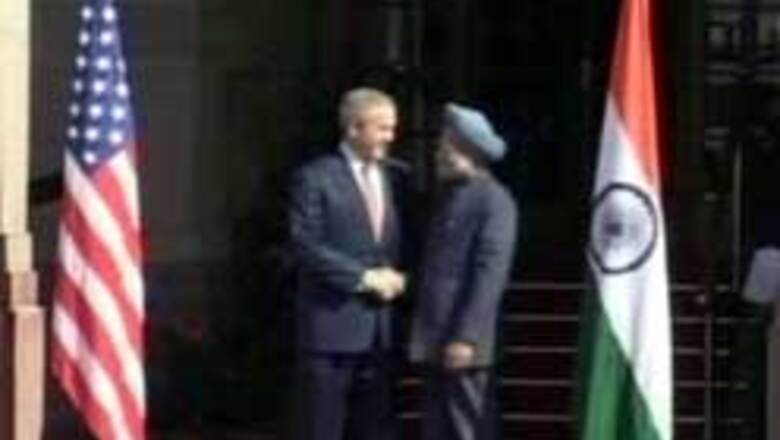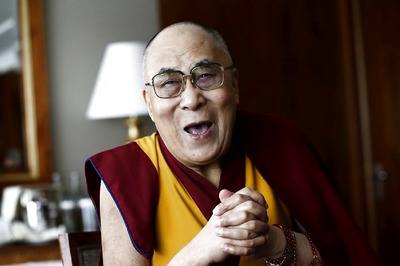
views
Vienna: Nuclear supplier nations on Thursday proposed conditions for lifting a global ban on fuel and technology exports to India, a step required to implement a US-India nuclear cooperation deal.
A green light from the 45-nation Nuclear Suppliers Group is needed for the deal, which has drawn criticism because India has never joined the Non-Proliferation Treaty (NPT), to proceed to the US Congress for final ratification.
Diplomats said up to 20 NSG states tabled conditions for India to do business with the cartel despite its repeated calls for a "clean, unconditional" exemption from rules barring trade with an NPT outsider that has tested nuclear bombs.
"There were proposals on practically every paragraph," a European diplomat said, referring to a U.S. waiver draft that some delegations and disarmament critics had said was too vague to ensure NPT principles would be safeguarded.
Diplomats said conditions included full-scope UN inspections of Indian nuclear sites, no more test explosions and periodic reviews of Indian compliance with the exemption, which would be the first in the NSG's 33-year history.
An NSG waiver granting India access to nuclear fuel and technology markets would end an embargo imposed after it test-detonated a nuclear bomb in 1974 with Canadian technology imported ostensibly to develop peaceful atomic energy.
New Delhi is one of only three nations not to have signed the non-proliferation treaty. It conducted another nuclear test in 1998 but is now observing a voluntary moratorium.
Special US legislation enacted in 2006, known as the Hyde Act, established conditions for US nuclear commerce with India including no more test explosions.
The Hyde Act by itself made it unlikely that the U.S. waiver text under discussion at the two-day meeting would pass without amendments, diplomats said. A second meeting is expected in early September to decide the extent of conditions.
"Tomorrow we will try to narrow down the focus to how the text can be tightened up to satisfy all concerns. We (envisage) another meeting in early September," said another EU diplomat.
"But it's fair to say the issues raised follow closely in line with what is in the Hyde Act," he told Reuters.
The Bush administration and major allies say the deal will shift India, the world's largest democracy, towards the treaty mainstream and combat global warming by fostering use of low-polluting nuclear energy in developing economies.
"I think there is a lot of support for (this deal) internationally. So I remain optimistic that we are going to be successful in this process," John Rood, U.S. undersecretary of state for non-proliferation, told reporters outside the meeting.
US congressional leaders have signalled the deal will not be ratified unless the waiver text reflects the Hyde Act.
Many NSG states were anxious that any exemption be worded to help ensure no items India imports for civilian nuclear power could "leak" quietly into its atomic bomb sector, or violate basic NPT standards including no bomb testing. India, which has a history of war and tension with neighbouring nuclear rival Pakistan, insists on the right to carry out nuclear tests if national security requires them.
NSG states spearheading the drive for waiver conditions included New Zealand, Ireland, Austria, Switzerland and Norway. Apart from the United States, France, Britain, Russia, Canada, Brazil and South Africa appeared to be in favour of the deal, with others like China, Germany and Japan supportive in principle but more amenable to conditions, diplomats said.


















Comments
0 comment